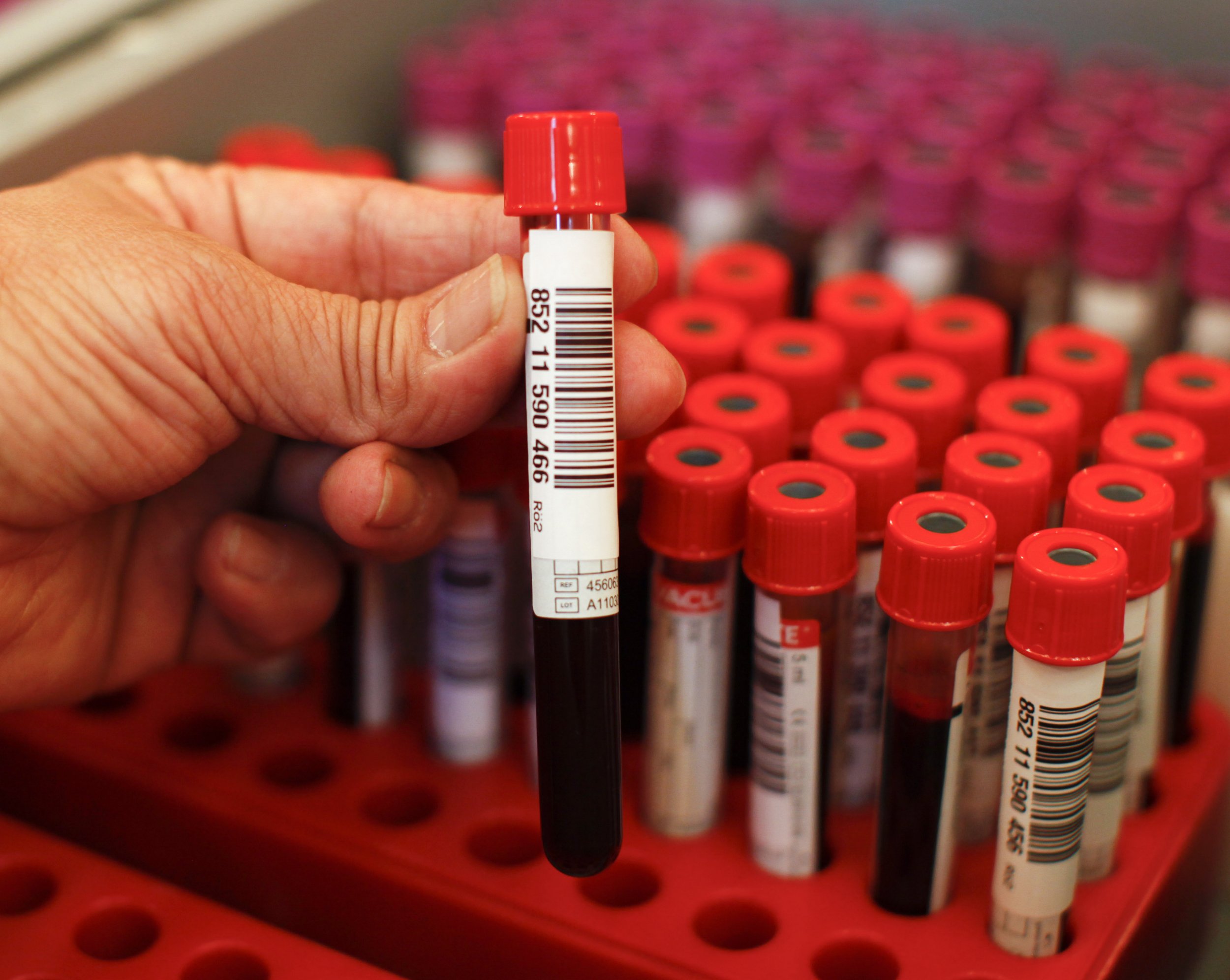
Researchers have created a blood test that they have used to accurately diagnose depression in a small sample of people, and they hope that with time and funding it could be used on a widespread basis.
It is the first blood test—and thus the first "objective" gauge—for any type of mental disorder in adults, says study co-author Eva Redei, a neuroscientist at Northwestern University in Evanston, Ill.
Outside experts caution, however, that the results are preliminary, and not close to ready for use the doctor's office. Meanwhile, diagnosing depression the "old-fashioned way" through an interview works quite well, and should only take 10 to 15 minutes, says Todd Essig, a clinical psychologist in New York. But many doctors are increasingly overburdened and often not reimbursed for taking the time to talk to their patients, he says.
The test works by measuring blood levels of nine different types of RNA, a chemical that the body uses to process DNA. Besides accurately diagnosing depression, which affects perhaps 10 percent of American adults and is becoming more common, the technique may also be able to tell who could benefit from talk therapy and who may be vulnerable to the condition in the first place.
In a study describing the test, published in the journal Translational Psychiatry, the scientists recruited 32 patients who were diagnosed with depression using a clinical interview, the standard technique. They also got 32 non-depressed patients to participate as a control group.
After taking blood samples from everybody, the scientists found that concentrations of these nine different chemicals significantly different between the two groups. Researchers were able to tell solely from the blood test who was suffering.
All of the depressed patients received cognitive behavioral therapy, which involved meeting with and talking to a therapist for more than four months. Afterward about 40 percent of the patients were no longer depressed, as measured by clinical interviews. Interestingly, these patients who recovered had a unique "fingerprint" of RNA levels in their blood, suggesting that the test might be able to shed light on who could benefit from this form of treatment, Redei tells Newsweek.
Even those who recovered still had significantly different levels of three blood biomarkers when compared to healthy patients, however; and most people who have had more than one depressive episode relapse at some point. This finding suggest that these biomarkers could be examined to tell who may be vulnerable to depression, Redei adds. "This is a first, this hadn't been shown before," she says.
Essig says it's "a nice little study" but has no clinical usefulness at this point. That's because it involved such a small sample of people and because the researchers excluded many patients that real clinicians would see on a daily basis, he says.
"It's moving basic knowledge incrementally forward, but its way to soon to say it's a 'blood test for depression,'" Essig says.
"Depression is not hard to diagnose, even in a primary care setting," he adds. "If physicians were allowed by health-care delivery systems to spend more time talking with their patients there would be less need for such a blood test."
Uncommon Knowledge
Newsweek is committed to challenging conventional wisdom and finding connections in the search for common ground.
Newsweek is committed to challenging conventional wisdom and finding connections in the search for common ground.
About the writer
Douglas Main is a journalist who lives in New York City and whose writing has appeared in the New York ... Read more
To read how Newsweek uses AI as a newsroom tool, Click here.








